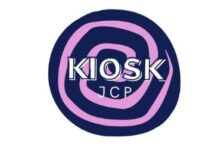In today’s fast-paced world, route optimization has become a powerful tool for businesses to enhance operational efficiency. By intelligently planning and optimizing transportation routes, companies can achieve many benefits, ranging from cost savings to improved customer satisfaction.
Additionally, companies can identify the most efficient routes for their vehicles by carefully analyzing factors such as distance, traffic patterns, and delivery time windows. An optimized route may mean simply the shortest route, but it goes beyond that.
It encompasses a holistic approach that considers various variables to streamline logistics, reduce fuel consumption, boost productivity, and strengthen customer relationships.
So, in today’s competitive marketplace, where time, resources, and customer satisfaction are paramount, the effects of route optimization cannot be overlooked.
This article explores the transformative effects of route optimization, shedding light on its impact and significance for businesses across industries.
What Is Route Optimization?
Route optimization is a strategic process businesses use to maximize the efficiency of transportation routes.
It involves analyzing various factors, such as distance, traffic patterns, delivery time windows, and vehicle capacities, to determine the most optimal ways to deliver or service vehicles.
The primary objective of route optimization is to minimize travel time, distance, and costs while maximizing productivity and customer satisfaction.
In route optimization, sophisticated algorithms and advanced software systems are employed to calculate the best routes based on specific parameters and constraints.
To produce an efficient plan, these planning systems consider various factors, including delivery priority, vehicle capacity, road conditions, and traffic congestion.
By leveraging real-time data and GPS technology, route optimization systems can dynamically adjust routes in response to changing conditions or unforeseen events.
Effects Of Route Optimization
Route optimization has revolutionized how businesses operate by unleashing many transformative effects.
From streamlined logistics to reduced costs, route optimization empowers companies to enhance efficiency, boost productivity, and deliver exceptional customer service.
Streamlining Logistics
The capacity to streamline logistical processes is one of the main advantages of route optimization. By analyzing factors such as distance, traffic patterns, and delivery time windows, businesses can identify the most efficient routes for their vehicles.
This optimization minimizes unnecessary detours and ensures drivers take the most direct path to their destinations. The result is a reduction in mileage and travel time, enabling companies to complete more deliveries in a shorter time frame.
Furthermore, route optimization helps businesses overcome logistical challenges, such as coordinating multiple stops and managing time-sensitive deliveries.
By optimizing routes, companies can allocate resources more effectively, improve route density, and eliminate overlaps or inefficient backtracking.
This level of precision enhances operational efficiency and reduces costs associated with labor, fuel consumption, and vehicle wear and tear.
Reducing Fuel Consumption
Another significant effect of route optimization is the reduction in fuel consumption. With the ability to calculate the most fuel-efficient routes, businesses can curtail unnecessary mileage and decrease their carbon footprint.
By avoiding congested areas or identifying alternate routes, companies can minimize idling time and fuel wastage caused by traffic delays.
Moreover, route optimization enables companies to adopt proactive measures to combat rising fuel prices, which is particularly beneficial for businesses operating large fleets.
Beyond cost savings, reducing fuel consumption contributes to environmental sustainability. By optimizing routes, businesses can play their part in reducing greenhouse gas emissions, promoting a greener and more sustainable future.
This aligns with corporate social responsibility and enhances brand reputation, attracting environmentally conscious customers and stakeholders.
Boosting Productivity
Route optimization directly impacts productivity by empowering businesses to accomplish more in less time. Companies can dynamically adjust routes based on changing conditions using advanced routing algorithms and real-time data.
This adaptability ensures efficient resource allocation, minimizes idle time, and improves productivity.
Moreover, route optimization systems provide valuable insights into driver performance, enabling companies to identify areas for improvement and implement targeted training programs.
With optimized routes, drivers can focus on their core tasks rather than wasting time and effort navigating inefficient paths. The resulting increase in productivity allows companies to handle higher order volumes and deliver exceptional customer service.
Strengthening Customer Relationships
In today’s customer-centric marketplace, businesses must prioritize customer satisfaction. Route optimization is vital, as efficient and timely deliveries significantly impact customer experience.
Companies can enhance customer satisfaction and build long-term relationships by reducing delivery times and providing accurate ETAs (Estimated Arrival time).
Moreover, route optimization enables businesses to proactively communicate with customers, informing them about their delivery status.
Real-time tracking and updates enhance transparency, reliability, and trust, fostering positive customer experiences.
Customers who leave a business feeling satisfied are more likely to become devoted brand advocates and make additional purchases, which are critical drivers of revenue development and market expansion.
Better Resource Allocation
Better resource allocation significantly affects route optimization, enabling businesses to utilize their resources more efficiently. By identifying the most optimal routes, companies can eliminate unnecessary overlaps, reduce backtracking, and balance workloads effectively.
This results in improved productivity, reduced costs, and enhanced operational efficiency.
With optimized resource allocation, businesses can handle increased demand without compromising quality, improving customer satisfaction.
Moreover, route optimization allows for effectively utilizing assets such as vehicles and drivers, maximizing their potential and minimizing downtime. By optimizing resource allocation, businesses can achieve better performance, cost savings, and a competitive edge in the market.
Competitive Advantage
Route optimization gives businesses a competitive advantage by enhancing operational efficiency and customer service. Companies can differentiate themselves from competitors by streamlining logistics, reducing costs, and improving delivery times.
The ability to offer faster and more reliable services due to optimized routes helps attract new customers and retain existing ones, increasing customer satisfaction and loyalty.
Furthermore, route optimization allows businesses to handle higher order volumes, meet tight deadlines, and optimize resource allocation, positioning them as industry leaders.
This competitive edge enables firms to outperform their competitors and thrive in today’s competitive marketplace.
Cost Savings
Cost savings significantly affect route optimization, allowing businesses to optimize their expenses and improve their bottom line. However, companies can substantially reduce costs by minimizing unnecessary mileage, reducing fuel consumption, and optimizing resource allocation.
Route optimization helps minimize labor costs by reducing idle time and optimizing driver schedules while preventing fines or penalties through compliance with regulations.
Additionally, efficient resource allocation and streamlined logistics enable businesses to achieve higher productivity with fewer resources, further contributing to cost savings and improved financial sustainability.
Bottomline
The effects of route optimization are far-reaching and transformative for businesses of all sizes. Companies can gain a significant competitive edge in today’s dynamic marketplace by streamlining logistics, reducing fuel consumption, boosting productivity, and strengthening customer relationships.
In addition, embracing route optimization as a fundamental strategy empowers businesses to optimize their operations, reduce costs, enhance sustainability, and deliver exceptional customer service.
Utilizing the potential of route optimization is no longer a choice but a requirement for success in today’s business market, which is becoming increasingly demanding and competitive.




